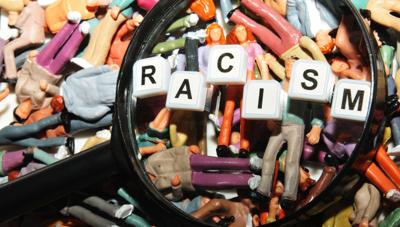Almost half of racialized Canadians reported facing racism and discrimination in the last five years, but those without strong personal relationships were three times more likely to report poorer mental health, says a new study.
The on people and communities also found victims of discrimination who have stronger ties with family and friends had a more positive outlook toward other Canadians and society, and were more hopeful about the future.
Across Canada, the prevalence of self-reported experiences of racism and discrimination ranged from a low of 43 per cent in Ontario to a high of 55 per cent in the Atlantic provinces and 49 per cent in Manitoba, Saskatchewan and Alberta, said the report released on Wednesday.
“There is a clear correlation between experiencing discrimination and poor mental health, lower levels of life satisfaction, a greater belief that race determines life success, as well as a greater tendency to lack hope,” it said.
“Strong social supports help to mitigate, at least to a certain extent, the negative well-being outcomes among those who experience discrimination.”
The survey, part of a series involving 70,000 individuals in five panels, examines the role of social connections in mitigating the harms associated with racism and discrimination.
In 2024, said the report, 45 per cent of racialized Canadians aged 15 years and older said they faced at least one incident of discrimination because of their race or ethnicity in the previous five years. Eight in 10 victims reported experiencing discrimination more than once.
The report found certain sociodemographic characteristics to be associated with vulnerability to racism and discrimination:
- Age: Half of racialized Canadians between 15 and 45 self-reported discrimination, but the rates subsequently declined, to a low of 23 per cent for those aged 65 and older;
- Race: Koreans, Black Canadians and those with multiple racial backgrounds were most likely to face racism and discrimination, with rates ranging from 54 per cent to 59 per cent;
- Marital status: 52 per cent of those who were single and had never married reported experiencing discrimination, versus 41 per cent of married, separated or divorced racialized Canadians;
- Sexual orientation:Â 53 per cent of 2SLGBTQ+ racialized Canadians experienced discrimination, compared to 44 per cent recorded for others;
- Education: Those with some post-secondary education and annual income greater than $150,000 reported more discrimination than the lower education and income groups.
Among all forms of discrimination, racialized Canadians most often reported unfair treatment (29 per cent), complaining about being treated with less courtesy and respect, treated suspiciously, treated poorly when receiving service, and people behaving as if they are afraid of them.
Twenty-six per cent of racialized Canadians said they had been intentionally left out or that people actively avoided them because of their race;Â 22 per cent said they were subjected to verbal attacks, mostly in public settings; and six per cent reported either being threatened with physical violence or being physically attacked due to their race or ethnicity.
Despite those differences, having strong personal relationships make a big difference.
According to the report, only 13 per cent of people who experienced discrimination but were highly satisfied with their family relationships reported poor mental health. This compares to 42 per cent of victims who lacked these same supports. The same rings true for those with and without strong friendships: 14.6 per cent versus 34.8 per cent.
However, the close ties had no effect on victims’ perceptions of inequality and its impact on personal life success, it said.
“The may suggest that strong personal connections help fortify the victims’ understanding that their race — an immutable characteristic — was the reason for the discrimination at school, work or elsewhere, and by extension, its role in their life success,” the report concluded.
























To join the conversation set a first and last name in your user profile.
Sign in or register for free to join the Conversation